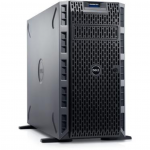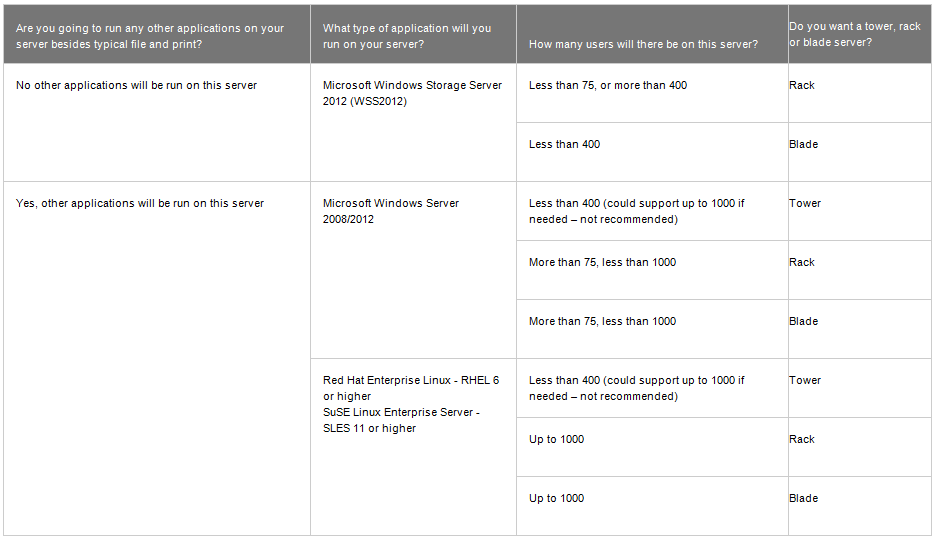
It’s big, it’s there, and it’s probably cursed by every member of the IT department of your business: It’s your server. In my last post I covered the three main types of servers that you as a small business owner were likely to encounter. Today, I will be providing you with a quick reference to hopefully help you pick what type of server you’re going to want.
As I mentioned last time, many factors go into what type of server you should buy. At the end of it though, there are three questions that you should be asking yourself:
- Is this a file and print only server?
- What type of application will my server be run by?
- How many users will be accessing the server?
With your answers to those questions, you can follow a rough flow chart as illustrated below. As you can see, those three questions explode out quite quickly:

A rack server will serve you best in just the opposite scenario – if your needs are quite inconsistent. Due to their nature, rack servers are very easy to scale up and down – mainly by adding more of them or taking them away. If you have a user base that’s quite large and constantly growing you are going to want to look into a rack server.
Finally, a blade server is best if you want a highly flexible solution – but as always with flexibility comes complexity. If you have a large foot print you’re probably going to want to invest in a blade server.
You may have noticed that thus far I have left off cloud computing – this is by design. If you’re interested in cloud computing chances are you would not need this blog as you are already a step ahead of the game. I will touch on that cloud computing is highly effective if you have multiple locations, and usually acts as an extension of physical servers that these blog series are covering.
If you have any questions, or are ready to start discussing a server solution, please contact L-Tron and we will be happy to help!